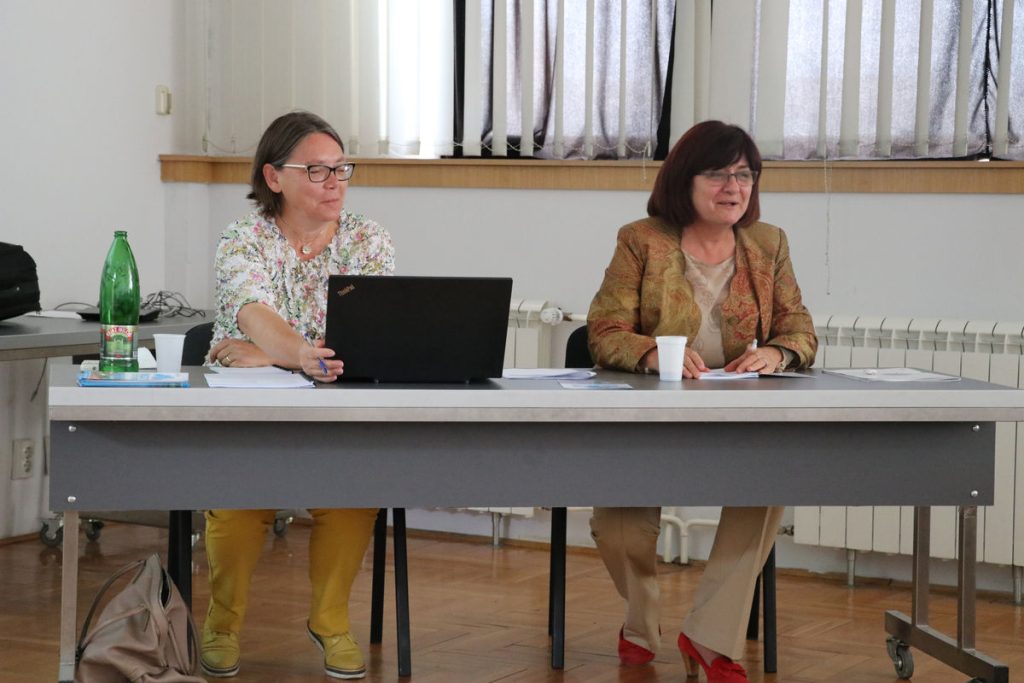About Us

The International Workshop and Conference, Particulate Matter: Research and Management – WeBIOPATR is a biennial event held in Serbia since 2007. The conference addresses air quality in general and particulate matter specifically. Particulate matter, arising both from primary emissions and as a result of secondary formation in the atmosphere, is one of the least well understood local and regional air pollution issues, and at the same time, it is perhaps the one with the highest health relevance, and with many challenges in monitoring.
The 1st WeBIOPATR Workshop was held in Beograd, 20.-22. May 2007, associated with a project funded by the Research Council of Norway. The workshop was attended by more than 70 participants presenting 35 contributions, and received wide multi-media attention. This event has started the efforts to create a sustainable platform for knowledge exchange within the research community and between the research community and the responsible authorities (Ministry of Health, Ministry of Environment, and the Serbian Environmental Agency). Book of Extended Abstracts can be downloaded here. Three extended contributions are published in CHEMICAL INDUSTRY & CHEMICAL ENGINEERING QUARTERLY, Vol: 14, No 1 (2008) and Vol: 14, No 3 (2008). Following the meeting on July 27th, Serbian National Broadcast presented a half-hour show „AIR POLLUTION – AN INVISIBLE KILLER“.
The 2nd WeBIOPATR workshop was held in Mećavnik, Mokra Gora, Serbia, 28.8.-1.9. 2009. The 40 participants discussed air quality issues, research needs and management tools, and strategies currently used in Serbia. For the first time, the workshop included a section on health issues related to particulate matter. Proceedings are available here. Selected extended contributions are published in CHEMICAL INDUSTRY & CHEMICAL ENGINEERING QUARTERLY Vol: 16 No 3 (2010) (IF 0.580).
The 3rd event, International WeBIOPATR Workshop and Conference, Particulate Matter Research and Management – WeBIOPATR2011, attracted yet wider international audience, and also included a dedicated PhD student workshop. Forty three presentations were given. The Book of Abstracts is available here. Selected extended contributions are published in CHEMICAL INDUSTRY & CHEMICAL ENGINEERING QUARTERLY Vol 18, No 4/II (2012) (IF 0.533).
The 4th WeBIOPATR, WeBIOPATR2013 was held in Beograd 2.-4. October 2013. It covered the traditional PM research and management issues as well as topics that aim to encourage citizens to contribute to environmental governance. Ways to provide the citizens and authorities with a range of tools and services related to the environment including PMs, and developing participatory sensing methods and tools utilizing smaller and less expensive monitoring devices and advanced ITC technologies, were in focus. Proceedings are available here. A number of contributions was again published in the CHEMICAL INDUSTRY & CHEMICAL ENGINEERING QUARTERLY Vol 21, No 1/II (IF 0.617). On March 24th 2014, the Serbian National Broadcast presented a half an hour TV show from the conference, as a part of the series “Svetski izazov: Kreiraj budućnost upoznajući okruženje” (“World Challenge: Create the Future Knowing the Environment”).
The 5th WeBIOPATR, WeBIOPATR2015 workshop and conference was held in Belgrade 14. – 16. October, 2015, with 41 oral contributions and 18 posters. Own sessions were devoted to sensor technologies for air quality monitoring, utilizing information and input from the EU FP7 funded CITI-SENSE and the EU COST action EuNetAir. The proceedings are available here.
The 6th WeBIOPATR, WeBIOPATR2017 workshop and conference was held in Belgrade 6. – 8. September 2017, with 36 oral contributions and 10 posters. Invited key note lectures were dedicated to real time technologies for measuring back carbon and reactive oxygen species, modelling and impacts of atmospheric mineral dust, and to assessment of policies and the WHO model for air pollution health effect assessment.
The 7th WeBIOPATR, WeBIOPATR2019 workshop and conference was held in Belgrade 1. – 3. October 2019. It has attracted a record 58 contributions, and brought together scientists from 12 countries, documenting that the issues of atmospheric pollution, with their wide implications for climate change, human health and ecosystem services, are no less important today. Invited key note lectures were dedicated to real-time reactive oxygen species field evaluations and measurements, ultrafine particles levels in outdoor and indoor environment, practical challenges of particulate matter mobile monitoring, particulate matter modeling on varous scales from urban areas to human airways deposition and current knowledge and policies on health effects of air quality. The Abstracts of Keynote Invited Lectures and Contributed Papers are available at WeBIOPATR publications.
The 8th WeBIOPATR, WeBIOPATR2021 workshop and conference was held in Belgrade 28st November to 1st Decembar 2021. , with 41 oral contributions and 17 posters. The 8th WeBIOPATR was for the first time organized as a hybrid event, in-person and on-line. The Abstats of Keynote invited Lecture and Contributed Papers are available at WeBIOPAR publications. Selected extended contributions were published in THERMAL SCIENCE journal, vol 27, issue 3B. We are very grateful to our unrelenting national and international partners for their financial and scientific support for this event. In addition, WeBIOPATR2021, is supported by the VIDIS project, https://vidis-project.org/, funded by the EC H2020 Framework Programme for Research and Innovation, area “Spreading excellence and widening participation”. VIDIS (2020-2023) is coordinated by Vinca Institute, Grant agreement number 952433
We have pleasure now to welcome to the 9th conference. We are excited to welcome old friends and new acquainttances and we are pleased that an increasing number of our collegues from region are able to support with their contributions and in-person presence, althrought it WeBIOPATR2023 will be hybrid conference. We are hoping that your support will extend to the future, as the problems we facerequire a strong scientific community and commitment al all social actors. We are very grateful also for your unrelenting national and international sponsors for their vital support.
Milena Jovašević-Stojanović and Alena Bartoňová